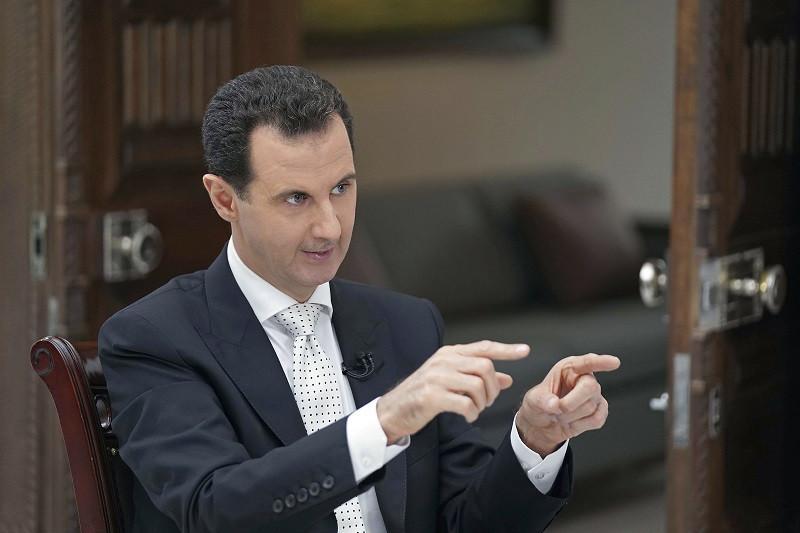
Syrian President Bashar al-Assad has warned U.S.-backed Syrian Democratic Forces (SDF), a Kurdish group also viewed as terrorists by Turkey, saying he would not hesitate to use force to retake the third of the country they control.
“The only problem left in Syria is the SDF,” Assad told Russia Today in an interview aired yesterday, referring to the SDF, which Washington backs against Islamic State of Iraq and the Levant (ISIL).
“We’re going to deal with it by two options,” he said.
Turkey also says the U.S. should drop its support to the SDF, which is mainly established by the People’s Protection Units (YPG), the Syrian arm of the outlawed Kurdistan Workers’ Party (PKK), according to Ankara. Turkey is cooperating with the Free Syrian Army (FSA) to clear its border of the YPG.
“The first one: we started now opening doors for negotiations. Because the majority of them are Syrians, supposedly they like their country, they don’t like to be puppets to any foreigners,” Assad said in English.
“We have one option, to live with each other as Syrians. If not, we’re going to resort... to liberating those areas by force.”
The SDF in oil-rich northeastern Syria have long pushed for increased autonomy in their heartland but Damascus has insisted it intends to reassert its authority over the entire country.
“It’s our land, it’s our right and it’s our duty to liberate it,” Assad said. “The Americans should leave. Somehow they’re going to leave.”
An SDF spokesman told AFP the group’s military command was aware of the interview but had no immediate comment.
Colonel Sean Ryan, spokesman for the U.S.-led coalition, declined to specify how the body would react if government forces attacked the SDF.
“The SDF has done an amazing job helping get Daesh off the battlefield and they should be commended, not threatened,” he told AFP on May 31, using the Arabic acronym for ISIL.
Both the SDF and Russian-backed Syrian troops are engaged in separate operations against ISIL in east Syria, creating a highly volatile situation, where de-confliction mechanisms have already been tested several times.
The SDF has clashed with Syrian regime fighters on the ground, and the coalition has bombed government forces and their allies on multiple occasions. Assad said a confrontation between Russia and U.S. forces over Syria had also been narrowly avoided.
“We were close to have direct conflict between the Russian forces and the American forces,” he said.
“Fortunately, it has been avoided, not by the wisdom of the American leadership, but by the wisdom of the Russian leadership.”
A U.S.-led wave of Western missile strikes on Syrian government targets across the country last month raised fears of a Russian response and full-blown internationalization of the conflict.
More strikes by U.S. ally Israel have further raised fears that the devastating seven-year war could still escalate.
Israel has claimed that it is targeting military infrastructure run by its foe Iran, which has been Damascus’s other key ally in the conflict. But Assad denied that Tehran had any active troops in Syria: “The most important fact regarding this issue, is that we don’t have Iranian troops.”